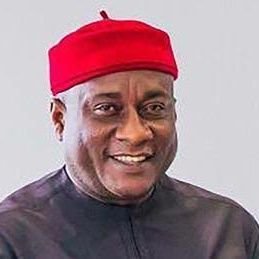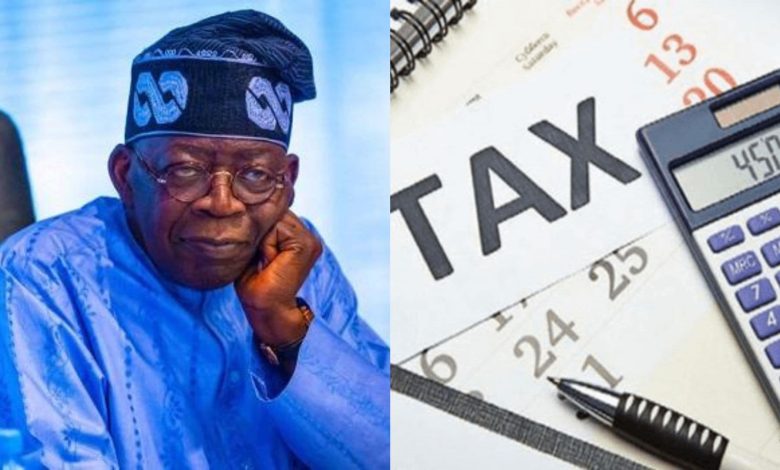Lagos, Nigeria — Nigeria’s fragile aviation sector is bracing for turbulence after the Federal Government ended longstanding tax waivers and reinstated Value Added Tax (VAT) on airline tickets and customs/VAT on aircraft, engines and spare parts—measures embedded in the Nigeria Tax Act, 2025 and companion reforms signed by President Bola Ahmed Tinubu. Implementation is slated for January 1, 2026, part of a broader revenue overhaul that also establishes a Nigeria Revenue Service and a Joint Revenue Board to replace and consolidate fragmented tax administration.
In a blunt warning, the Airline Operators of Nigeria (AON) said the regime, if enforced as written, could “cripple airline operations within 48 hours”—citing razor-thin margins, FX scarcity, and a cost structure already burdened by multiple fees. “We have to go back to paying customs duties for imported aircraft and spares, VAT of 7.5% on imported aircraft, and even ticket fares. The airlines would die within 48 hours,” said Allen Onyema, AON vice-chair and Air Peace CEO.

Government officials counter that the reforms are essential to rebuild a chronically weak tax base (tax-to-GDP ~10–11%) and to harmonize a patchwork of levies. Authorities have pushed the effective date to 2026 to ease the cost-of-living shock while insisting there will be “no going back” on the aviation VAT once the law kicks in.
What exactly changed?
On 26 June 2025, President Tinubu signed a package of four tax bills: the Nigeria Tax Act, Nigeria Tax Administration Act, Nigeria Revenue Service (Establishment) Act, and Joint Revenue Board Act. Together they reset the legal architecture of taxation and reverse prior VAT/duty exemptions that had applied to commercial aircraft, engines, spares, and air tickets. The measures are scheduled to take effect January 1, 2026.
While the Senate debated a rise in the VAT rate itself in 2025, the more immediate pressure point for airlines is re-imposition of VAT and customs duties on the inputs required to keep fleets flying—and on tickets paid by end-consumers. Industry briefings and government communications confirm the shift away from blanket waivers to full taxation on these items.

Why operators say this could break the system
Nigeria’s carriers run on 3–5% margins in normal times, but the last two years brought FX volatility, spares shortages, and costly maintenance abroad. Operators already pay a thicket of charges: NCAA 5% ticket sales charge, navigational fees, terminal/parking, and more. Layering VAT on tickets and duties/VAT on aircraft and spares pushes cash outflows up front (when importing or maintaining aircraft) and raises fares (when VAT is added to tickets), compressing demand just as inflation bites consumers. That’s why AON’s Onyema warned of a near-immediate operational hit.
A former director in the Aviation Ministry also flagged the safety risk if operators defer maintenance to conserve cash: “customs duties and VAT on aircraft, engines and spares could immediately raise operational costs, leading to deferral of non-critical maintenance—an undesirable safety outcome.”
Global norms: how other countries tax flying

International policy generally discourages taxing international air transport and aircraft/parts. The International Civil Aviation Organization (ICAO), via Doc 8632, urges states to exempt international air carriers from import duties and to zero-rate or exempt international transport from VAT/sales taxes; it also opposes fiscal measures that distort competition or impede connectivity.
Europe (EU): Under the EU VAT Directive, most international passenger air transport supplied by EU carriers is zero-rated/exempt, and many supplies to aircraft operating chiefly on international routes (fuel, parts, certain services) are zero-rated under Article 148(e)–(g)—a long-standing recognition of aviation’s cross-border nature.
United Kingdom: There is no VAT on flight tickets; instead the UK uses an Air Passenger Duty (APD)—a per-passenger charge scaled by distance and cabin class—currently ranging roughly £7–£224 per sector. APD is transparent to consumers and administratively simpler than reclaiming VAT on international travel.
South Africa: International air transport is zero-rated for VAT purposes (supplies tied to international air services can qualify), though the general VAT rate is 15% and import VAT applies broadly—with input credits permitted to registered vendors.
Airline viewpoint: IATA has repeatedly warned that piling taxes on aviation reduces connectivity and growth without delivering climate or consumer benefits. In a 2025 global passenger survey, IATA found 79% of respondents believe there are already too many taxes on flying and 78% said taxation is not the way to make aviation sustainable. “Taxation should not be used to solve every policy problem,” IATA argues, urging governments to follow ICAO policies and zero-rate international air transport.
> Willie Walsh, IATA Director General: “Airline margins are already very thin. Adding complexity and new layers of taxation increases costs and risks cutting connectivity, especially in developing markets.”
What higher taxes mean for Nigeria’s economy—and fares
Demand effect: Multiple Nigerian outlets and analyst notes warn that fares will rise once VAT returns on tickets and duties/VAT apply to aircraft and spares. Fewer passengers and load-factor pressure could follow, particularly on price-sensitive domestic routes.
Supply effect: Airlines could ground aircraft awaiting costly parts, cut frequencies, or exit marginal routes—dampening domestic connectivity and constraining inward investment tied to aviation access. Nigeria’s lower tax-to-GDP problem is real, but over-taxing the transport backbone risks shrinking the taxable base elsewhere in the economy.
Fiscal timing: The government has delayed broader tax implementation to 2026 to cushion households amid inflation and subsidy removal aftershocks, signaling room for phased aviation measures too.

What the government is trying to fix
Tinubu’s reformers argue Nigeria long suffered from narrow, loophole-ridden tax laws and weak enforcement. The 2025 acts aim to simplify and unify tax administration, broaden the base, and improve digital compliance, with the new Nigeria Revenue Service centralizing functions previously scattered under the FIRS banner and related bodies. The Senate also debated a VAT-rate adjustment and other tweaks to rebalance the overall system.
Officials have told industry audiences there will be “no going back” on aviation VAT once the clock starts—arguing VAT is a consumption tax borne by end users and that airlines can recover input VAT on eligible purchases. Operators dispute the practicality of recoverability in Nigeria’s FX-strained environment and warn cash-flow timing and import duty outlays are the real choke points.
International quotes and perspectives
ICAO Policy (Doc 8632): “States should reduce or eliminate… taxes on the sale or use of international air transport and on the acquisition of fuel, lubricants and technical supplies for use in international air transport.” (Policy text summarized)
IATA: “Taxes on air travel are not a sustainable solution. They raise costs, suppress demand, and divert resources from decarbonization and service improvements.” (from 2025 releases/surveys)
Willie Walsh (IATA) on UN tax proposals: “Airline margins are already very thin… new layers of taxation increase costs and risk route cancellations.”
Options on the table: What should Nigeria do?
1) Keep tickets VAT-free (or zero-rated) for international travel; phase VAT on domestic tickets slowly.
This aligns with ICAO policy and EU/SA practice (international zero-rated). If domestic VAT must return, start low, cap it temporarily, and review after 12–18 months.
2) Restore targeted exemptions for safety-critical inputs.
Zero-rate or waive customs duty/VAT on aircraft, engines, avionics, and spares used by Nigerian AOC holders, with tight audits to prevent abuse. This mirrors many jurisdictions’ treatment and avoids perverse incentives to defer maintenance.
3) Swap VAT for a simpler passenger duty on domestic sectors—if revenue must be raised.
The UK’s APD model shows an explicit per-passenger charge can be simpler to administer and forecast than VAT credits/refunds. Any Nigerian “Domestic Passenger Duty” should be low, transparent, and sunset-reviewed to avoid choking demand.


4) Time the roll-out to macro reality.
Link implementation to FX stability and inflation trends; avoid launching new aviation taxes while airlines still struggle to source dollars for MRO and lease payments. The government already recognized hardship by delaying broader measures to 2026; aviation deserves a phased-in schedule within that window.
5) Offset with cost-relief and efficiency.
Fast-track FX access for safety-critical MRO/leases.
Cut non-tax charges (e.g., streamline multiple agency fees) to keep the all-in cost neutral.
Digitize VAT credit/refund processing with 30-day service-level guarantees to ease airline cash-flow.
Offer temporary investment tax credits for fleet renewal and noise/CO₂-cutting retrofits, aligning with Nigeria’s net-zero ambitions.
6) Protect connectivity to smaller cities.
If costs rise, airlines will prune marginal routes first. Consider Public Service Obligations (PSOs) or route support for critical secondary airports to prevent market exit and regional isolation.
Bottom line
Nigeria’s tax reforms are a necessary modernization of a leaky fiscal system. But re-taxing aviation the wrong way, too fast risks shrinking connectivity, raising fares, and undermining safety and growth. The global playbook is clear: zero-rate international air transport, exempt or zero-rate aircraft and safety-critical inputs, and if governments must raise money from flying, use simple, transparent per-passenger duties with caps and periodic reviews.
AON’s alarm bell should not be dismissed; it should be channeled. Nigeria can still sequence and target these taxes to protect both revenue and the network the economy depends on.
Key sources & developments
Nigeria Tax Act, 2025 + companion laws signed June 26, 2025; effective Jan 1, 2026; establishes Nigeria Revenue Service/Joint Revenue Board and reinstates VAT/duties on aviation.
Government stance: Delay to 2026 acknowledged amid hardship; “no going back” on airlines paying VAT when law starts.
AON warning: New taxes could “cripple operations in 48 hours.”
Leadership/AllAfrica, Headlinenews.news BusinessDay, Daily Trust, Punch:
Fares likely to rise; sector flags treaty concerns and safety risks from deferred maintenance.
IATA/ICAO: Urge zero-rating of international air transport and caution against proliferating aviation taxes that cut connectivity.

“The National Patriots hereby urge the Federal Government to reconsider the reintroduction of VAT and excise duties in the aviation sector. At a time when Nigerians are already grappling with economic hardship, additional levies on air transport risk deepening the burden — particularly as we approach an election year. Air transportation remains critical to the survival of small and medium-scale entrepreneurs whose businesses rely on affordable, reliable connectivity. The warning by airline operators that ticket prices may rise sharply, or that some carriers could shut down altogether, must not be taken lightly. We therefore call for a review of these measures, and for the continuation of waivers on aircraft, engines, spares and tickets, in order to safeguard both economic stability and the welfare of the Nigerian people. A well researched report has been forwarded for consideration”
Princess G. Fraser. MFR.




